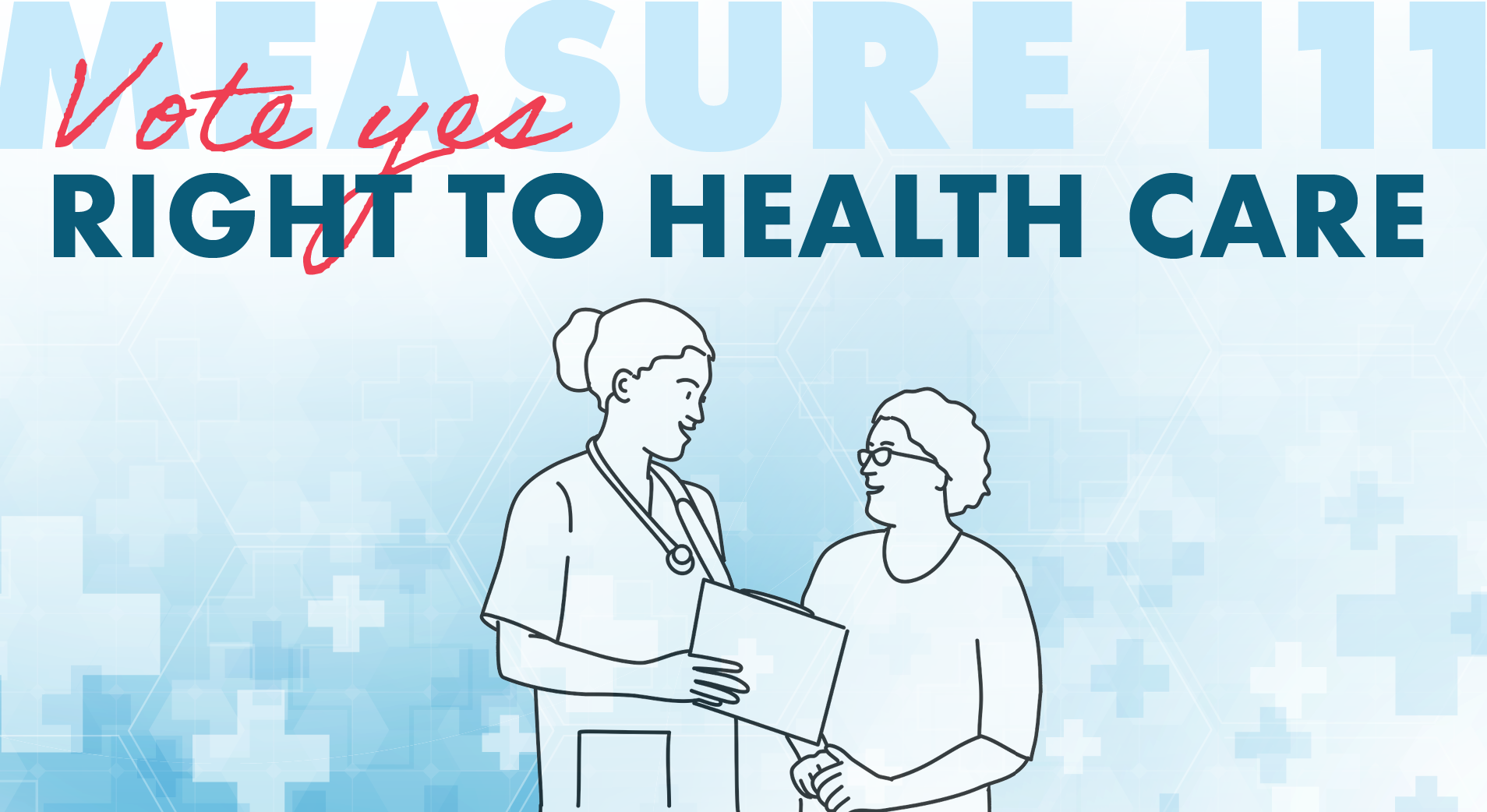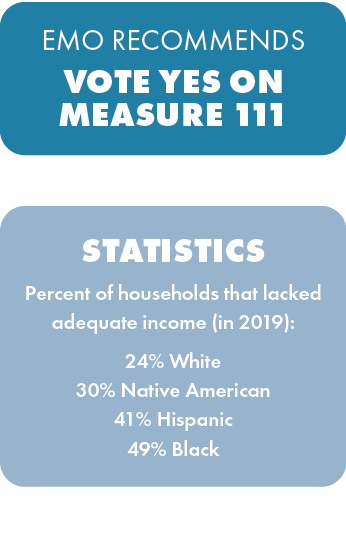Summary
Measure 111 would amend the Constitution of Oregon by affirming “access to cost-effective, clinically appropriate and affordable health care as a fundamental right.” Currently, the constitution has no language stating that access to health care is a basic human right for all Oregonians. Notably, this amendment is worded so that spending on health care cannot take money away from other public services, such as public school funding.
The measure started out as SJR 12, and it passed the Oregon Legislature with the vote count of 51 to 36.
Supporters
Supporters of Measure 111 argue it is a necessary step towards reducing key disparities in health care access, as well as reducing costs associated with severe health conditions. When care is needed, those without health care require intensive and extended care, increasing the cost of health care for everyone.
Data shows that low-income Oregonians, already burdened by the rising cost of living, often lack quality health care. Furthermore, these income disparities are not shared equally across all racial groups.
In 2019, 24 percent of White households lacked adequate income, compared to 49 percent of Black households, 41 percent of Hispanic households, and 30 percent of Native American households. BIPOC (Black, Indigenous, and People of Color) individuals have higher rates of chronic illness, such as asthma, diabetes and high blood pressure. Black and Native Oregonians experience higher mortality rates than do White Oregonians; Native Americans in Oregon have a life expectancy 4.7 years shorter than White Oregonians.
Opponents
Opponents of Measure 111 argue its ambiguous language could lead to billions in extra costs for the state in health care spending. Republicans in the Oregon Legislature expressed concerns that the measure would either represent an empty promise, given the language prohibiting the use of funds from other public services, or would create an overwhelming fiscal burden for the state.
Other groups have echoed the concern regarding a loophole for the state to avoid an obligation to provide money for health care access. The Oregon Progressive Party, while supporting the measure, noted that Measure 111 does not create a legally enforceable obligation for the state to provide health care to those who do not have it. Legislative attorneys agree, saying that courts are unlikely to enforce the state’s requirement to guarantee health care given the provision regarding public services spending.
EMO Recommendation: Vote YES on Measure 111
A YES vote conveys broad, state-wide approval of health care as a basic human right, while recognizing that more work needs to be done. In addition to supporting Measure 111, EMO urges further action to legally guarantee health care access for all Oregonians. As people of faith, we are called to support “both ethical and legal regulation to safeguard … public health and protect the health and well-being of … the general public” (EMO Statement of Social Principles).
Further, given that lack of health care disproportionately affects low-income Oregonians, EMO recognizes health care for all to be an issue of economic justice. In a time where the COVID-19 pandemic has disrupted the lives of all Oregonians and exacerbated the disparities in health outcomes faced by communities of color, EMO shares in the belief that providing health care for those who do not have coverage contributes to the health of our whole society.
EMO Social Principles
This recommendation is based on EMO social principles of Human Rights and Religious Freedom, Economic Justice, and Family and Community Well-being. See EMO's Statement of Social Principles for more details.






